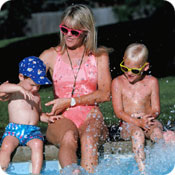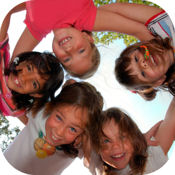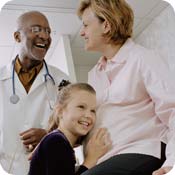
It's "summertime, and the livin' is easy." But for kids, life during summer can be downright sweltering. Many activities-ball games, tennis clinics, band camp, and football training-take place during this hot season, and everyone is at risk for dehydration and heat illness when exposed to sun, high temperatures, and humidity.
However, children are at a greater risk because a child's body surface makes up a much greater proportion of his overall weight compared to an adult. So before you send your youngster out to play, follow these tips and guidelines.
Know the Signs of Dehydration
The first signs of dehydration include thirst, dry lips and tongue, fatigue, lack of energy, and feeling overheated. The problem is that if kids wait to drink until they "feel" thirsty, dehydration has already started. The thirst mechanism does not kick-in until a child has already lost about 2% of her body weight through sweat.
If left untreated, dehydration can become worse and bring on heat exhaustion (dizziness, nausea, vomiting, headaches, weakness, and muscle pain), which can lead to life threatening heat stroke (nausea, body temperature of 104 degrees or higher, vomiting, seizures, disorientation, lack of sweating, shortness of breath, unconsciousness, coma, and death).
Treatment
Getting your child out of the sun and to a cool place is the first line of defense if heat exhaustion occurs. Your child should take off excess clothing and bulky equipment, and drink plenty of chilled water. Apply cool, wet towels to the skin or have your child sit in a cool shower.
*Heat stroke is a medical emergency and requires immediate medical attention.
Prevention is the Key!
The good thing is that heat illnesses aren't inevitable. A little prevention goes a long way:
- Get Acclimated
The first line of defense against dehydration in children is slowly getting them acclimated to the summer heat and humidity. Spending time outdoors, playing in the heat, riding bikes, running, jogging, playing ball, and doing yard work will build up their bodies to handle the heat. Allow for regular breaks and encourage them to drink plenty of fluids.
- Drink
Make sure your child drinks plenty of cool, plain water or sports drinks to stay completely hydrated. Regular breaks to drink fluids should be scheduled, even if your child is not thirsty. Regular fruit juice and soft drinks do NOT re-hydrate the body because they don't contain the right amounts of sugar and electrolytes.
- What About Sports Drinks?
Continued ›
| 






Member Comments